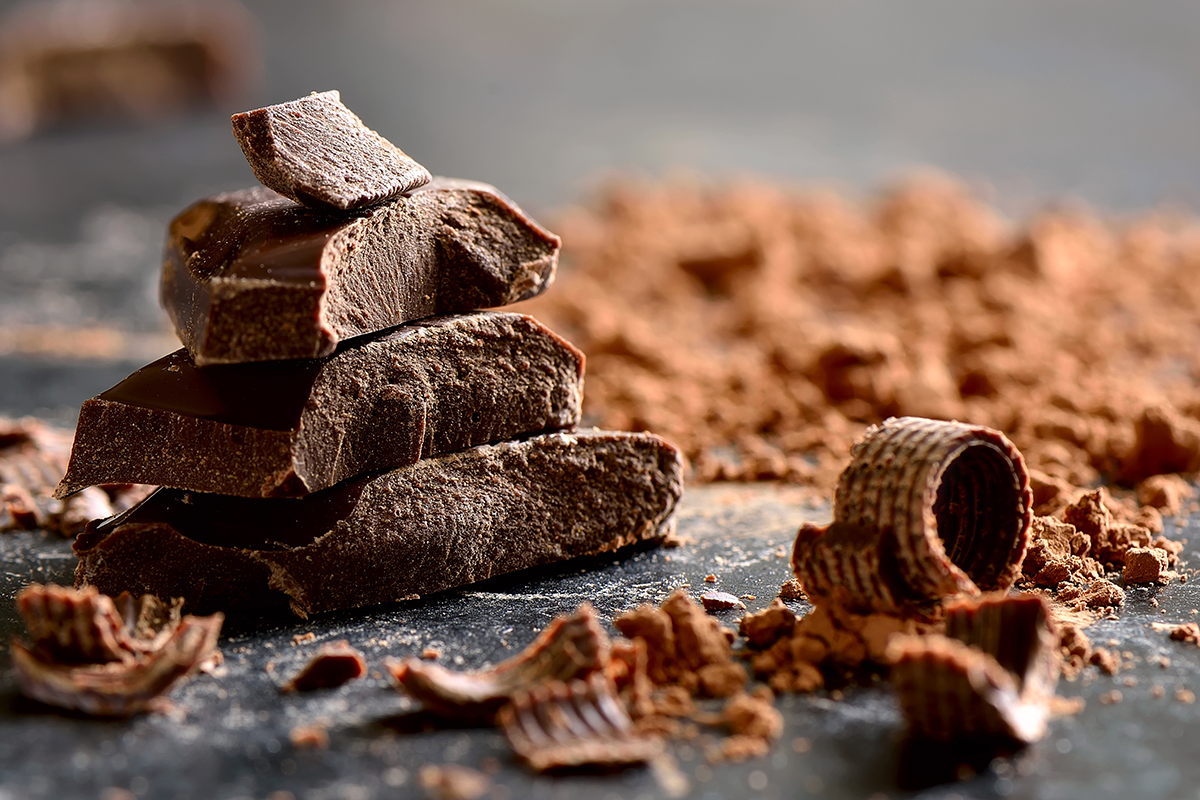Advertisement
The Sensual Plate
There have been plenty of foods touted as aphrodisiacs: oysters, exotic spices and chocolate, to name a few. But did you know that everyday foods also contain most of the molecules needed to produce the right combination of hormones? You can be the world’s most sensitized lover by ensuring that at least 60 percent of … Continued

There have been plenty of foods touted as aphrodisiacs: oysters, exotic spices and chocolate, to name a few. But did you know that everyday foods also contain most of the molecules needed to produce the right combination of hormones? You can be the world’s most sensitized lover by ensuring that at least 60 percent of your diet comes from raw sources and that 90 percent of it is vegetarian in content. In addition, the following nutrients are very important for sexual function.
Vitamin A, found in spinach, carrots, watermelons and mangoes, helps transform cholesterol into active sex hormones. This vitamin is also vital for the health of mucous membranes, especially in the mouth. Shortage of vitamin A reduces hormone production and inhibits libido. It’s more effective when taken with vitamin E.
Vitamin B also plays a significant role in the production of sex hormones. Bananas, potatoes and pumpkins help to promote the retention of calcium, nitrogen and phosphorous and work to build healthy tissues. They are also known to reduce mental stress, one of the major causes of reduced sex drive.
Caffeine affects thiamine (vitamin B1) production and this can result in an unhealthy, rapid pulse. Deficiency of riboflavin (vitamin B2) interferes with our carbohydrate mechanism and robs us of energy. Niacin (vitamin B3) enhances sex performance by dilating blood vessels. Inositol found in sesame seeds slows down arterial hardening, while vitamin B12 deficiency causes anemia and compromises the male sex drive and nervous system.
Vitamin C boosts immunity and acts along with iron to maintain levels of adrenal gland hormones, including a hormone involved in stimulating orgasm.
Vitamin E compounds are vital to our reproductive system. In fact, deficiency of vitamin E causes impotence. This vitamin also retards the aging process, protects fatty acids and hormones from oxidation and improves blood supply.
Essential fatty acids (EFAs) are vital to the functioning of the endocrine, thyroid, adrenal and prostate glands. EFAs promote calcium absorption and aid in membrane formation. Good sources include evening primrose and flax seed oils.
Lecithin is essential for arousal and contains phosphorus and choline. As much as 80 percent of the male seminal fluid is lecithin. Found in soy products and egg yolks, good-quality lecithin is also available in supplement form.
Make sure you get adequate calcium as it maintains the body’s acid-alkaline balance, provides you with stamina and helps prevent over-excitement. Don’t rely on milk for your calcium supplementation. The most bioavailable calcium is found in green plant foods, the darker the better. Sesame seeds are also an excellent source of calcium.
If you are stuck on a high-sugar diet, you will need to take calcium supplements. This is because sugar causes acidity in the system, a condition that can be reversed by calcium, potassium and sodium salts working together. However, if you are on a high-sugar diet and your potassium and sodium intake is below required levels, the calcium will be deposited in your joints, irritating them and causing the formation of spurs and bumps. Supplementing with a multivitamin, multimineral pill once a day is enough for your calcium requirement. Menopausal and post-menopausal women need to take twice as much dietary calcium. Better get off the sugar!
Sodium is a useful acid neutraliser and all our body fluids carry sodium salts. Don’t overdo your sodium intake by sprinkling salt all over your plate. Try to get your sodium from sea and vegetable sources, such as kelp and other seaweeds, beets, turnips and greens such as chard, spinach and parsley.
Potassium is the greatest alkalizer. It maintains the right acid-alkaline balance for hormone production in the endocrine glands. Its electrolytic properties make it an important agent for healthy muscle tissues, vitality, strength and co-ordination. The best sources are organic blackstrap molasses and dried fruit, fermented soybeans and raw nuts. Refined table salt, sugar and coffee deplete the body’s potassium reserves.
Silica is a fertility mineral found in sprouts, brown rice and whole grains. It improves sensual sensitivity and nervous response. It gives bounce to hair, shine to skin and is available, as a supplement, in vegetal silica and silica gel forms.
Iron relates directly to stamina. It is present in the enzymes that take part in cell respiration and is stored in muscle tissues. Green, leafy vegetables and liquid iron supplements are helpful.
Magnesium is an excellent muscle-relaxant, vital for optimum heart function and aids in prolonged sensual encounters. It also reduces anxiety.
Chromium helps regulate blood sugar levels, which determines available energy. The peppier you feel, the better you’ll perform in all areas!
Zinc is needed by spermatozoa and the prostate gland for the production of seminal fluid. Low levels of zinc can cause sterility.
Who knows, with information such as this perhaps oysters and chocolate will be replaced with raw foods for a longer, healthier love life.
Food List for Lovers
- Almost all fruits.
- Fresh cherry, berry and wheatgrass juices. Try wheat germ oil mixed with apple or carrot juice for taste. Fresh-pressed vegetable juices are best.
- Onion, garlic, leeks, radishes, brus-sels sprouts, cabbage.
- Yogurt, kefir and raw soaked seeds.
- Aloe vera juice: an excellent cleanser, contains 75 bioactive ingredients including B-complex, chlorine, manganese, calcium, potassium, almost all essential amino acids and several enzymes.
- Bee pollen: contains 20 percent protein, 15 percent fatty acids and 15 percent lecithin, flavonoids, nucleic acids and minerals. Watch out for allergies and stomach upsets.




